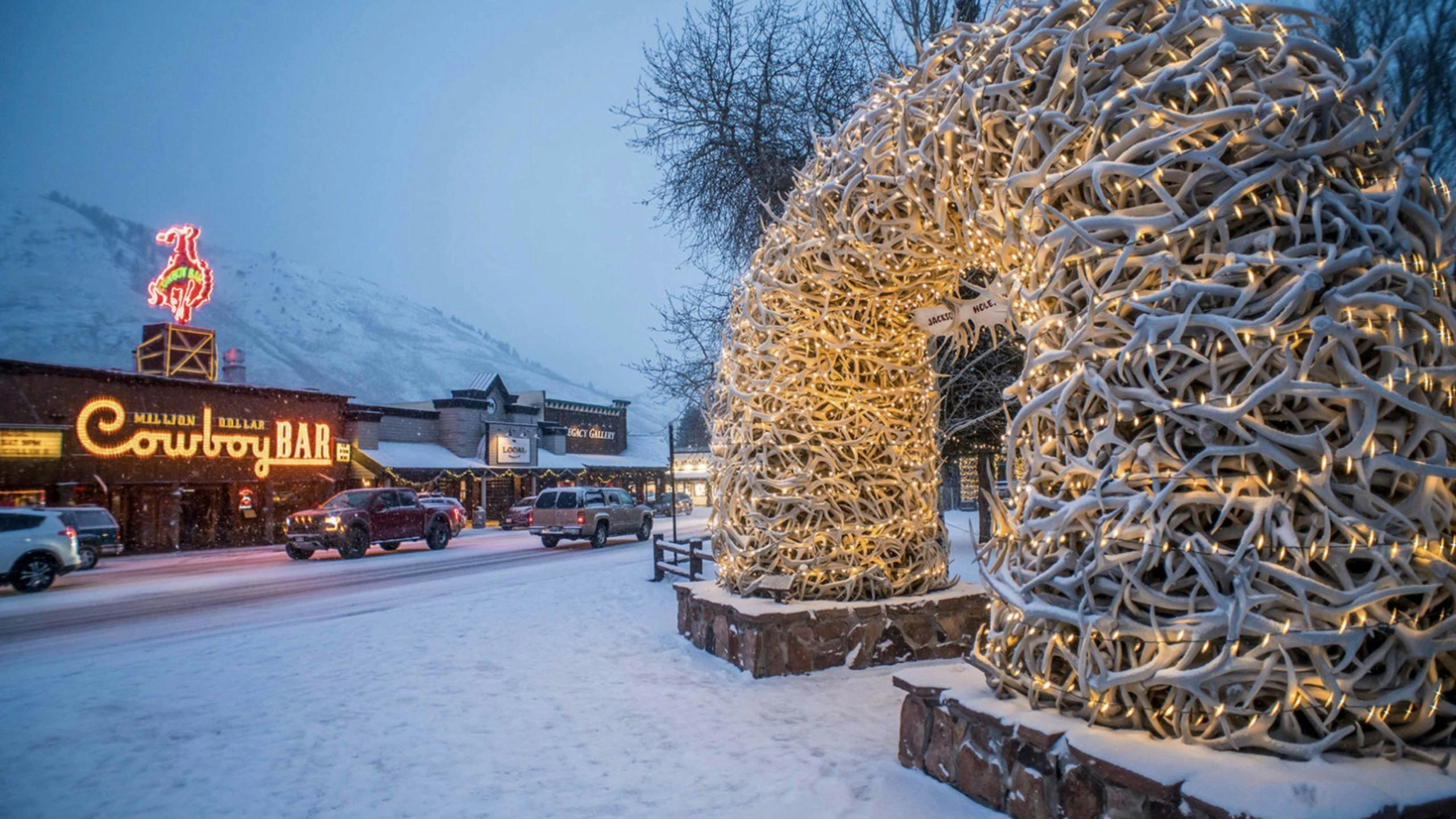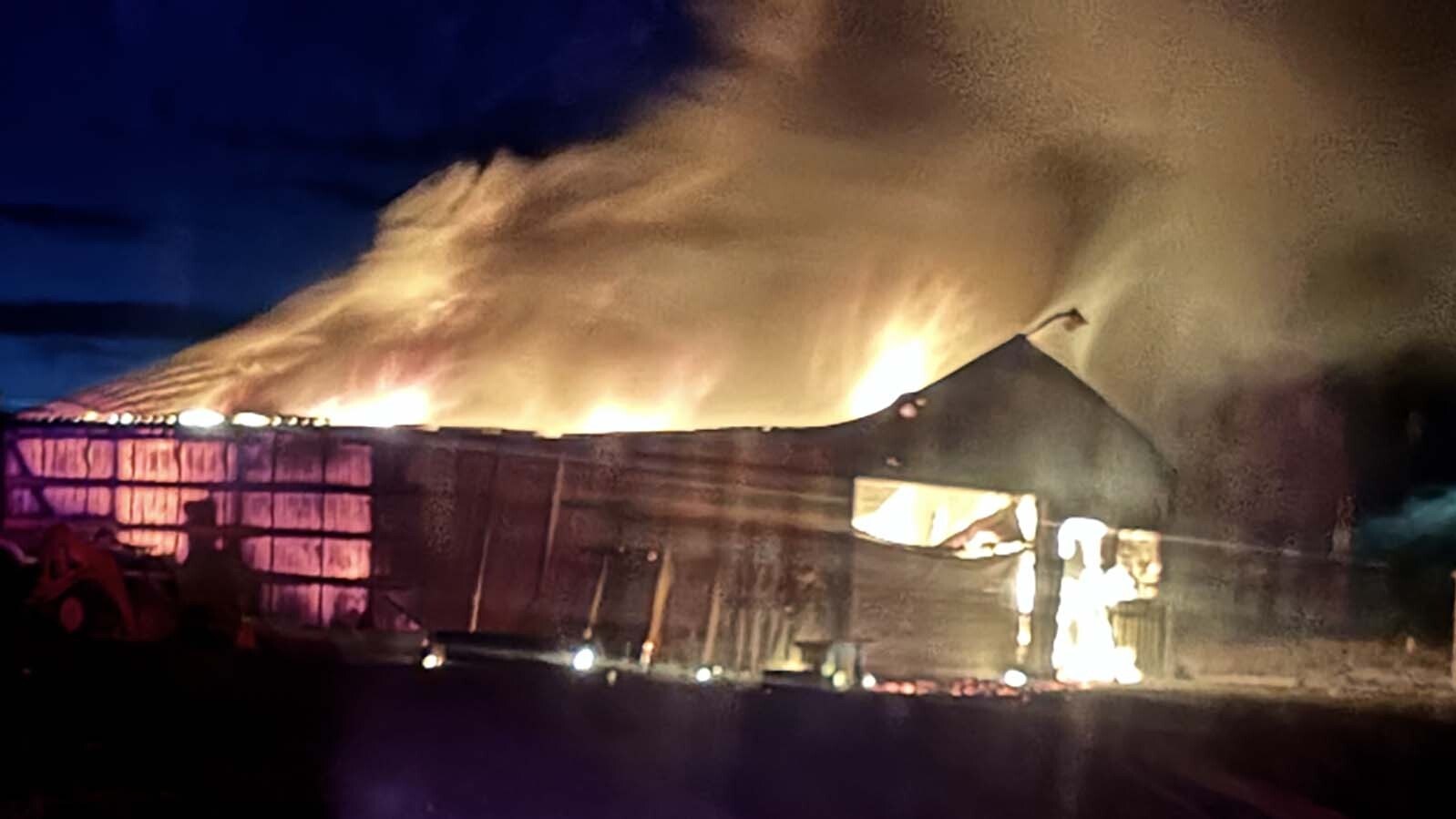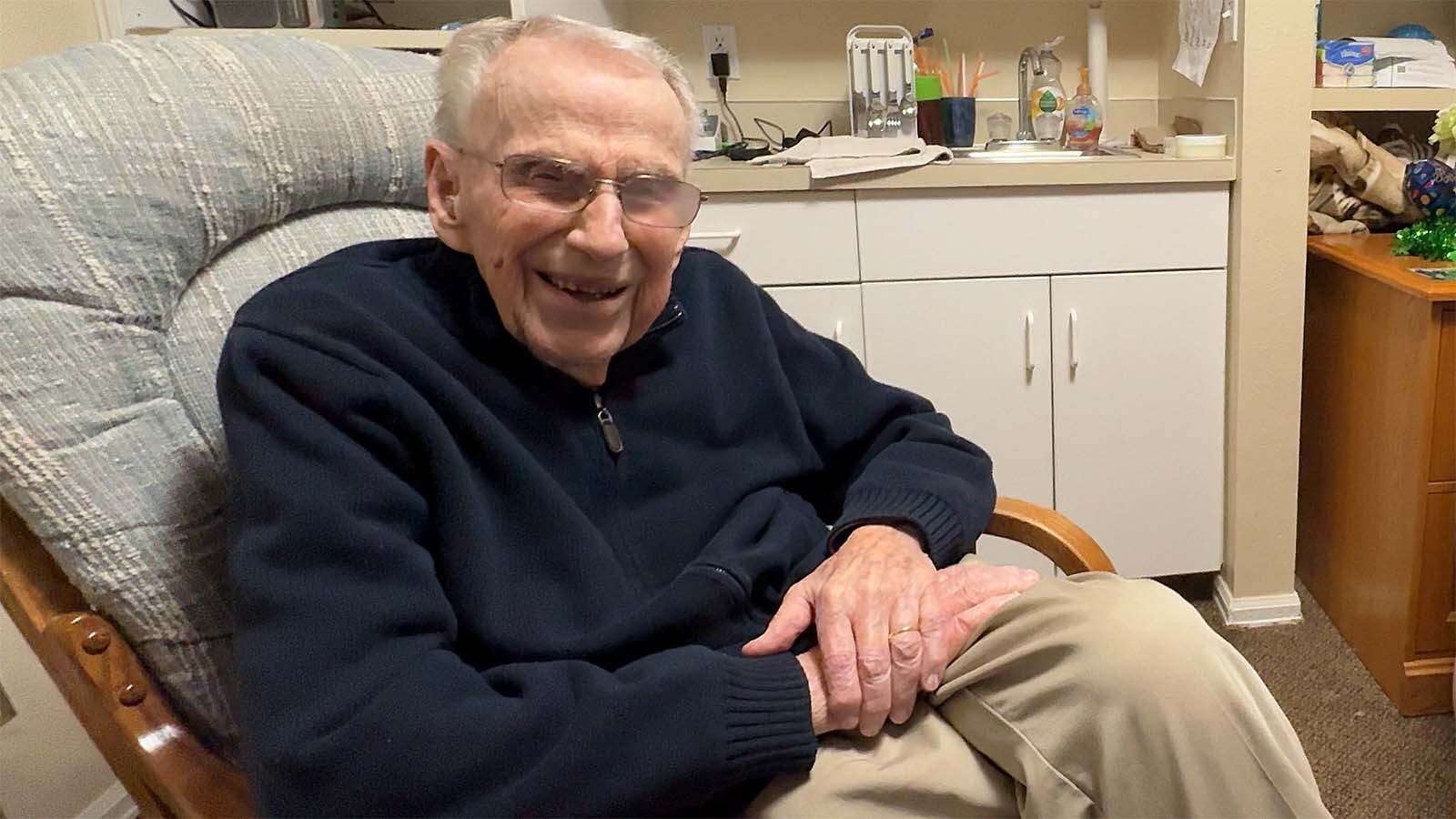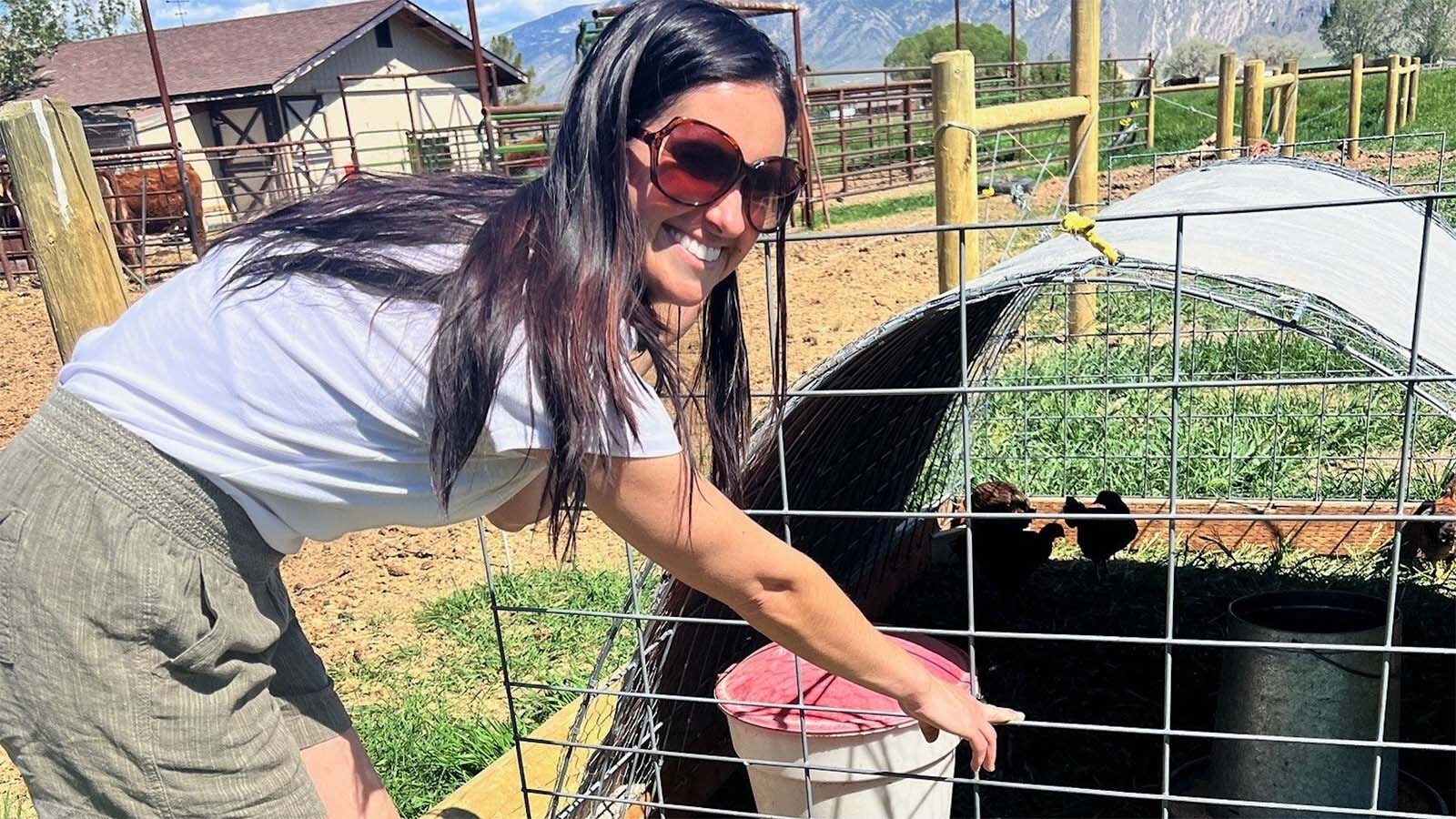By Leo Wolfson, State Politics Reporter
Leo@Cowboystatedaily.com
There’s no question in the minds of many Jackson locals about how they are viewed around the rest of Wyoming.
“It’s not that we don’t love the state, I know the state doesn’t love us,” said Mike Woods, a local bartender.
Whether Jackson and Teton County are separate entities from the rest of Wyoming or fully immersed in the state depends on who you ask.
Along with being a politically blue island in a sea of Wyoming Republican red, Teton County also is by far the wealthiest — not only in Wyoming but in the entire country.
Seen As Outsiders
Payton Larimer said he and many other Jackson locals are fully aware they are seen as outsiders by many in their own state, but that doesn’t bother them much.
“We usually try to get along and I feel like we can fit in,” he said. “We’re not as bad to get along with as the rest of Wyoming would have with someone from New York City. We have a lot of shared life experiences.”
The wood-planked sidewalks give Jackson a Western flair, an odd juxtaposition to the fine jewelry, art galleries and Patagonia stores they lead to. Jackson is highly dependent on tourism and like any tourist town, it has a certain image it wants to project.
“To survive in this town, you have to cater to tourists and locals alike,” Larimer said, adding that “the tourists are a little more picky.”
Preparing For Winter Rush
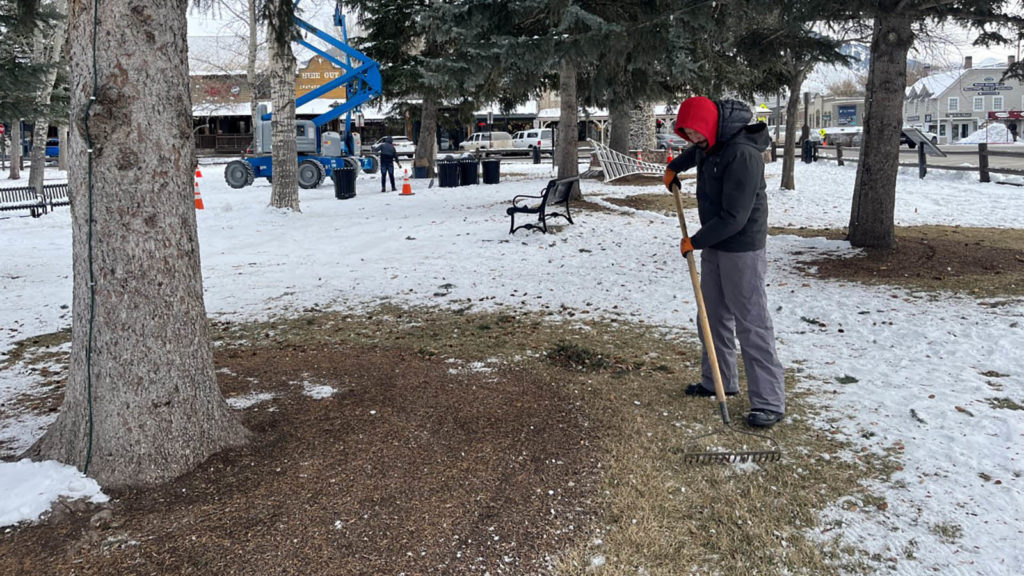
A distinct hum of machinery filled the air of Jackson’s well-kept downtown streets Wednesday morning, beeping cranes maneuvering around antler-shaped arches as workers furiously raked leaves below, their hot breath wafting puffs of steam into the cold air.
Although it was a frigid shoulder-season morning in Jackson, evident by the many businesses still closed and mostly barren sidewalks, many workers were busy setting up shop displays in the crisp early morning light.
Jackson Hole Mountain Resort, the main source of the area’s winter tourism, will open in less than 10 days, which for many local businesses means big money. With the ski area opening also comes hundreds of thousands of international visitors and a small army of seasonal workers.
As city workers strung lights to trees in Jackson’s famous Town Square, Larimer could be seen taking out the trash outside Wyoming Whiskey. Two Lexus SUVs followed by a Mercedes puttered by.
‘Not Wyoming’
Woods, a Jackson resident of 41 years, fully admits that Jackson doesn’t embody the common Wyoming culture. Most Wyoming communities are conservative, working class and have an agricultural focus.
“You drive 40 miles and you’re back in Wyoming,” he said.
But Woods finds that most people in Jackson share a positive opinion about the rest of their state.
Larimer agreed, and said people in Jackson still share a similar outlook to their neighbors around the state, even though he also said many of his fellow residents see the rest of Wyoming as “a little backwards, a little po-dunk.”
He said the longer people live in Jackson, the more they tend to “assimilate” to the state’s culture.
“It seems like the rest of Wyoming is a true, old-boy culture, which is really cool to see,” said Daley Matthews-Pennanen. “It’s much more progressive here.”

‘A More Liberal Sensibility’
No matter their political leanings, most people who move to Teton County do so for world-class recreation and stunning natural backdrops.
“People come here to be outdoors and recreate,” Matthews-Pennanen said. “They tend to have a more liberal sensibility.”
‘All The Millionaires And Billionaires Want To Buy Land Here’
A bartender at the historic Wort Hotel, Woods was fortunate enough to buy land and build a home in 1990.
Many others in Jackson have not been so lucky. Larimer grew up in Star Valley about 40 miles to the south and moved to town five years ago. Despite working two jobs, Larimer said there is no question in his mind that he will never be able to afford a home in his new community.
“It’s never going to be possible,” he said. “The fact is, all the millionaires and billionaires want to buy land here.”
The median price for a home in Jackson in October was $3.1 million, according to realtor.com, with most costing more than $1 million and ranging up to $40 million. That’s an increase of 25% over the median cost in October 2021.
State Rep. Mike Yin, D-Jackson, said many working class people move to Jackson out of a legitimate love for the area, but then are forced out when they want to achieve other goals in their life, like buying a home.
A handful of people Cowboy State Daily spoke with referred to Jackson as the land of the billionaires, not millionaires.
Shared Challenges
Along with being one the most expensive locations for a house in the nation, Teton County also has a higher concentration of wealth per household than any other in the U.S., according to 2019 IRS returns.
An acre of land in Teton sells for around $1 million and the county’s priciest property, a 233-acre ranch, recently sold for $35 million.
Wages are higher than the rest of Wyoming, around $20 per hour at minimum, but that’s nowhere remotely close to afford any sized home in the community.
A severe shortage of affordable housing in Teton County has only grown worse in the past decade, according to a March 2022 Teton Region Housing Needs Assessment.
Rental rates in Jackson can range from more than $2,000 a month for a studio apartment to $3,667 a month for three-bedroom units.
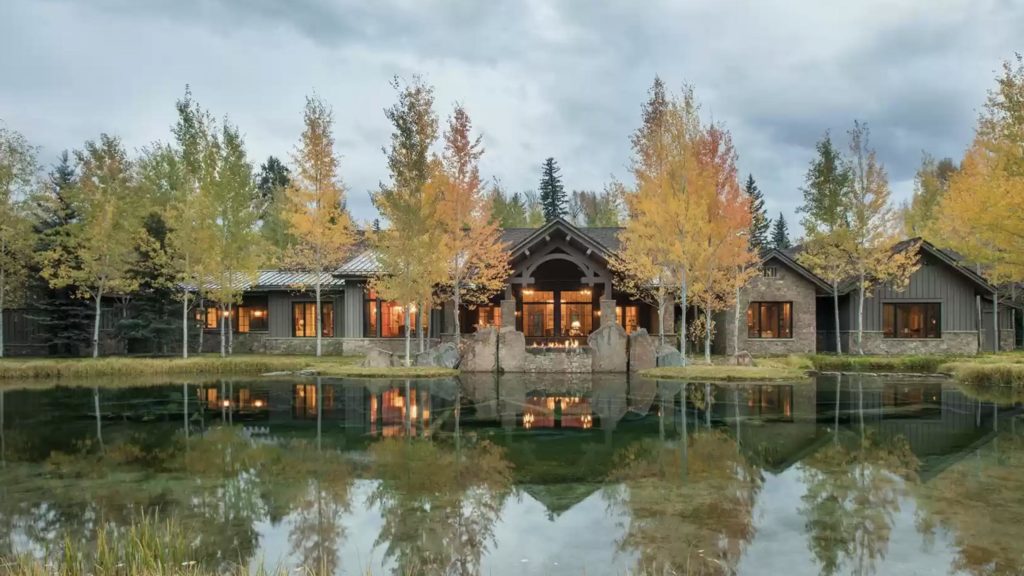
Hope For Housing
Matthews-Pennanen said although the housing market has not improved since she first came to Jackson in 2018, she’s optimistic that her county’s full support in last week’s elections of a $160 million specific purpose excise tax that includes five affordable housing measures will eventually help the community alleviate some of its housing crunch.
“All the propositions that passed seem to show people are interested in investing in solutions,” she said.
Lack of affordable housing is the predominant conversation taking place among Jackson’s working-class population.
Some have taken a skeptical eye to rhetoric used by people like Luther Probst, a Teton County commissioner, who has a less-than-favorable opinion of free-market housing in his community. In an October Facebook post, Propst said he was proud of his vote against building “another 83 luxury homes in a place where we can house locals.”
Yin said the only free-market projects that are profitable in Jackson are for luxury developments.
“If developments aren’t profitable as affordable housing, they don’t build them,” he said, “which is ultimately why we create and fund deed-restricted housing.”
Without its working class, Jackson would have no one to clean its hotel rooms, run its ski lifts, and fill cups at its many restaurants.
A Feudal Scenario
Susanne Jackson has lived in Jackson for 12 years and mentioned how many employers build housing for their employees, which although on paper may seem like a great idea, creates a feudal-like scenario for employees who want to find new jobs.
“Then they don’t feel like they can leave because they’ll lose their home,” Jackson said. “It’s surreal.”
Yin said although he isn’t opposed to building all luxury housing, he worries that building high-end projects will further exacerbate the need for affordable housing because of the increase in employees needed to support the work, creating an endless dearth of affordable housing.
“The worry is that if we build too much free-market housing – great businesses already can’t find employees – it creates a new demand for employees,” he said.
Many people who work in Jackson have chosen more affordable nearby communities, such as Victor and Driggs in Idaho, and even Pinedale, 90 minutes to the south in Wyoming. But Jackson said even prices in those towns have more than doubled since the pandemic.
“Finding affordable housing is virtually impossible,” she said.
Something In Common
Due to the COVID-19 pandemic, lack of affordable housing – a longtime issue – has become a problem felt statewide in Wyoming and the nation. Rampant inflation has made matters difficult on homeowners as well, causing skyrocketing property tax increases.
Yin believes issues like these give his community something in common with the rest of Wyoming above what it may have before.
Blue Island
Politically, the town of Jackson is a light blue island swimming in the sea of red that is the rest of Wyoming. There are thousands of registered Republicans and people who voted Republican in Teton County’s midterm elections, but the results also show they are a far cry from holding a majority
Jackson, who describes herself as left-leaning politically, said her town is “a total anomaly” compared to the rest of Wyoming.
“It’s a bubble within a bubble,” she said.
Woods said the town has changed noticeably since he moved there in the 1980s.
“The county has more Democrats for sure,” he said, adding that the county used to have much more of a ranching culture than it does today. “It just has (changed). A lot of people moved in here, lots from the East Coast but more from the West Coast.”
Woods and a handful of others said most people they’ve seen move to town over the last decade or so have been Democrats.
Some Lean Away From Trump
A believer in the value of nonpartisan politics, Yin said members of his community traditionally are open-minded about who they vote for, but have drifted to the Democratic Party in recent years because of former President Donald Trump.
“I know people who were longtime Republicans who changed their registration because they didn’t want to be associated with that,” Yin said.
Wyoming voted for Trump with a larger margin (70%) than any other state in 2020.
Larimer said he can relate to the town of Jackson’s peculiar political relationship with the rest of Wyoming, as he was the only Democrat in a conservative family.
“I kind of understand where Jackson is coming from,” he said with a chuckle. “I’m used to being surrounded by people with different political beliefs.”
Different, But Still Western
Larimer said he, like many Jackson residents, moved to town for a job. This is the same reason Woods came to town one summer 41 years ago. He was just lucky enough to arrive when Jackson had similar affordability to the rest of Wyoming.
“It’s not getting any better,” Woods said.
Paul Vogelheim, a Jackson Republican who unsuccessfully ran for the state House of Representatives this year, acknowledges that Jackson has a vastly different culture than the rest of Wyoming.
When he was a Teton County commissioner, he had to keep a sense of humility, often teased by other commissioners around the state for where he lives. But when they got down to business, he said the other lawmakers were always impressed with what Teton has to offer as far as its experience in tourism and affordable housing.
“They find out people are actually normal here,” he said. “People are actually nice here. It blows their preconceived image out of the water. We’ve got to get out of our bubble.”

